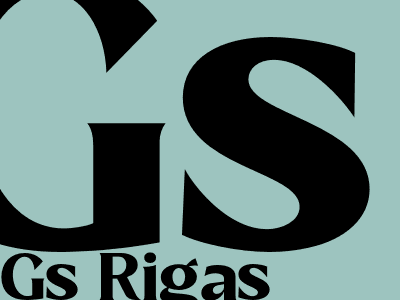Gs Rigas: The Man Who Rekindled the Greek Spirit
Early Life and Influences
Riga Feraios (1757-1798), also known as Gs Rigas, was born in Velestino, Thessaly, into a wealthy family. His father, Antonio Feraios, was a prosperous merchant, while his mother, Maria Tselepi, was a woman of great piety. Rigas received a traditional Greek education, studying the works of ancient Greek philosophers and historians. He also developed a passion for poetry and theater, which would later influence his political and literary career.
During his youth, Rigas was exposed to the ideas of the Enlightenment, which were spreading throughout Europe at that time. He was particularly influenced by the writings of Voltaire, Rousseau, and Montesquieu, who advocated for individual liberty, reason, and the rule of law. These ideas resonated with Rigas's own aspirations for a free and independent Greece.
Political Activism and Literary Work
In the late 18th century, Greece was under Ottoman rule. Rigas became increasingly involved in political activism, seeking to liberate Greece from Ottoman domination. He joined the secret society Filiki Eteria, which was dedicated to the cause of Greek independence. Rigas also published a series of revolutionary pamphlets and poems, which called for a Greek uprising against the Ottomans.
One of Rigas's most famous works is the "Hymn to Liberty," which became a rallying cry for Greek revolutionaries. The poem expresses the longing for freedom and independence, and it inspired countless Greeks to join the fight against Ottoman rule. Rigas also wrote several important political tracts, including the "New Political Constitution of the Inhabitants of Rumeli, Asia Minor, the Islands of the Archipelago, and Wallachia and Moldavia," which outlined his vision for a free and democratic Greece.
Execution and Legacy
Rigas's political activism and revolutionary writings angered the Ottoman authorities. In 1797, he was arrested and taken to Belgrade, where he was executed by the Ottomans in 1798. Rigas's execution shocked the Greek people and further fueled the movement for independence. He became a martyr for the cause of Greek freedom, and his writings continued to inspire Greek revolutionaries for decades to come.
Gs Rigas was a visionary and revolutionary who played a key role in the Greek War of Independence. His writings and political activism helped to rekindle the Greek spirit and inspire the Greek people to fight for their freedom. Rigas is considered one of the greatest heroes of Greek history, and his legacy continues to inspire Greeks today.
Conclusion
Gs Rigas was a remarkable man who dedicated his life to the cause of Greek freedom. His writings and political activism helped to rekindle the Greek spirit and inspire the Greek people to fight for their independence. Rigas's legacy continues to inspire Greeks today, and he is considered one of the greatest heroes of Greek history.

Comments